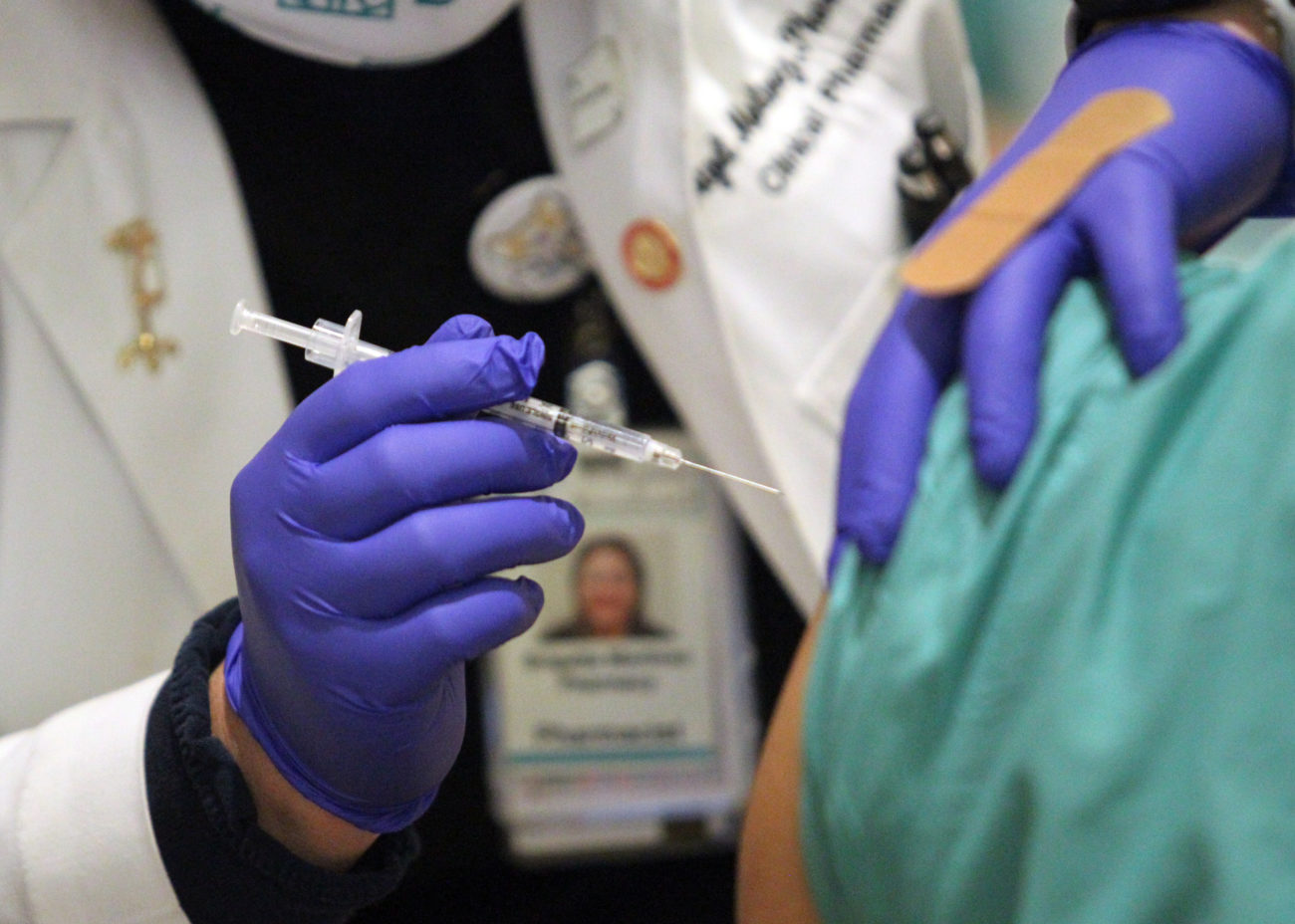The Texas Department of State Health Services announced Friday that doses of COVID-19 vaccines would be distributed at capacity to registered health care providers next month however, it’s unclear how likely that is to occur as a report on Friday by the Washington Post states that reserves of the vaccine had already been depleted.
Dr. Emilie Prot, regional medical director for DSHS Region 11, announced that as of Feb. 1, the state would be able to distribute doses to the providers authorized to administer the vaccine at capacity.
“So let’s say there’s a provider that can get 1,000 people vaccinated per day, (DSHS) will start giving them a 1,000 vaccines per day to allocate out, but that will start Feb. 1,” Prot said during a weekly news conference call on Friday.
She explained that the federal government was holding on to second doses of the vaccines which are administered to individuals who have already received a first dose. The two doses are needed for the vaccines to achieve full effectiveness which is reported to be 95%.
On Tuesday, U.S. Department of Health and Human Services Secretary Alex Azar announced they would be releasing second doses that were held on reserve.
“They’ve been saving that second dose because we were unsure, and they were unsure, about the capability of the manufacturer to get that same number of vaccines prepared and ready for distribution,” Prot said.
However, on Friday afternoon, the Washington Post reported those reserves had already been depleted, claiming the Trump administration had started shipping out the doses in December.
Prot, though, indicated that the increased supply to providers next month was at least partly due to the ability of laboratories and and manufacturers to speed up production.
Right now, there are still not enough doses of the vaccines to meet the demand but Prot asked that people be patient.
“We still know what to do in terms of protection so — wearing your mask, stay six feet from others, stay outside,” Prot said. “Those behaviors should not be forgotten and even once I see patients and I vaccinate them, I make sure to drill in that, after one dose, there’s not enough research that says that they are protected so they need to not take off their mask.”
COVID-19 infections continue to rise in the Rio Grande Valley and throughout the state.
In Hidalgo County, 10 more died due complications related to COVID-19, county officials reported Friday, and 511 more individuals tested positive.
The 10 deceased individuals, all of whom were 50 or older, raised the total number of deaths in the county to 2,293.
Of the 511 new cases reported in the county, 391 cases are confirmed and 111 are considered probable, while nine are suspected cases.
Confirmed cases are those collected from PCR tests while probable cases are collected from antigen tests. Suspected cases are gathered from positive antibody tests.
Since the start of the pandemic, the county has had 39,835 total confirmed cases, 16,620 probable cases and 882 suspected cases.
Currently, 2,136 cases are considered active.
Additionally, the county reported there were 395 COVID-19 cases in hospitals throughout the county and 138 of those patients were being treated in an intensive care unit.
Cameron County health officials reported six more COVID-related deaths on Friday and 245 new cases, raising their total to 1,228 deaths and 32,698 confirmed cases. Of those, 5,487 are active cases.
In Willacy County, there 17 newly confirmed cases of the disease on Friday for a total of 1,761.
State health officials were working hard to distribute the vaccine, she said, and noted that on Thursday, Gov. Greg Abbott announced that Texas became the first state to administer 1 million doses.
“I know people still feel like we’re not doing enough but we’re out there and we’re getting vaccines out and I know all of our public health and other partners have been working very hard,” Prot said. “There’s a lot of organization that goes into events and people will always be angry — if it’s either by appointment only, they’ll be angry; if it’s by first come, first served and they’re spending long hours in the car, people will be angry.”
“I do understand that it can be frustrating,” Prot continued, “but we do still want people to be patient and don’t forget what we’ve already learned (about) how to protect ourselves.”
She added that as President-elect Joe Biden began unveiling his plan to combat the COVID-19 pandemic, the federal government was directing more funds to public health.
“There looks to be that there’s going to be a lot more support for public health which I’m very happy about and there’s going to be a lot more funding towards vaccinations,” Prot said.





